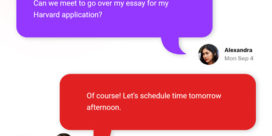AtomicMind launches the AtomicMind Foundation Scholar Program to assist students from families experiencing financial hardship
NEW YORK — AtomicMind, an education technology company that offers families a boutique coaching experience in the increasingly competitive college ... Read more





